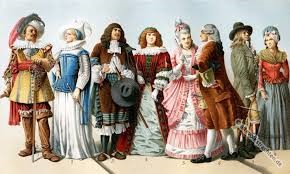
Sometimes it makes sense to look back into the history. We would know much of what is happening to us beforehand. Perhaps we will find even answers to the open questions that move us today.
I would particularly like to refer to the Baroque period, the time from the 17th century to the first half of the 18th century. The time was marked by great events: the geocentric world image was questioned and the earth was no longer regarded as the center of the Universe. There were heated religious disputes. These disputes got worse through the emergence of the Protestant church. The 30 years’ war left hunger and many diseases.
People longed for political order, security, clear social conditions and well-founded knowledge. The Baroque has addressed these needs, especially in the Catholic regions of Europe. A new culture has been established that focused on the tradition and sought stability. The idea of progress was re-defined. The compulsion in the society to “search for something new” was no longer regarded as a measure for politics and social development.
Thinking and acting were not focused on science, but on architecture and music. Within the social hierarchy, artists enjoyed a relatively high status, while merchants and entrepreneurship had little prestige, especially since their activity could have been morally questionable.
Compared to the Protestant countries, the Catholic countries were characterized by magnificent buildings and not so much by modern traffic routes for commerce. The military budget was also much lower in Catholic countries. Instead money was spent on cultural activities.
The beneficiary of this policy was not only the upper class. The public luxury of beautiful churches, sumptuous music and elaborate open-air festivals were also accessible to the middle and lower classes of the population.
Back to the present: Today we have many parallels to the emergence of Baroque culture. The global picture has also changed greatly in the course of globalization. In recent years, the religious clashes increased and suddenly there are wars that make many people to become refugees in other countries.
It is hardly surprising that people today are longing for more stability, political order and security as in the old baroque days.
Do you think that politics and our society will be increasingly turning to art and taking on topics such as literature, architecture, music, theater, dance, and painting?
It will be exciting to see whether in the coming years, the arts will become a meaningful part of everyday life, as in Baroque times and to find answers on the questions:
– Is culture also nowadays an option to give a society more stability?
– What kind of cultural activities could blossom?
– Who can be the driver for new developments?
I am looking forward to hearing your opinion! Thank you for sharing your thoughts with me.